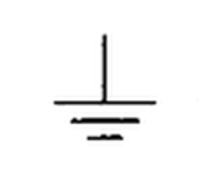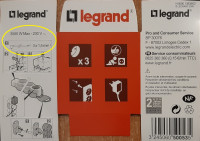Hello.
I need a dozen or so meters of extension cord at the lowest cost, so I think the best solution will be to buy the cable, plug, socket separately and assemble the whole thing. I don't know much about electricity (I'm just going to learn here ) but I think an ordinary 2-wire one is enough, but will the cheapest one be suitable?
) but I think an ordinary 2-wire one is enough, but will the cheapest one be suitable?
It's about connecting a 400-800 W radiator. What else is worth remembering? Should I choose a grounded plug and is it enough in terms of safety? I would like to add that I would like the cable to be as flexible as possible (flexible), more than those in standard "shop" extension cords, but I do not know if it is possible, because the thinnest (smallest diameter) I have seen in the store was still in quite thick white armor (can't remember the diameter)...
I need a dozen or so meters of extension cord at the lowest cost, so I think the best solution will be to buy the cable, plug, socket separately and assemble the whole thing. I don't know much about electricity (I'm just going to learn here
It's about connecting a 400-800 W radiator. What else is worth remembering? Should I choose a grounded plug and is it enough in terms of safety? I would like to add that I would like the cable to be as flexible as possible (flexible), more than those in standard "shop" extension cords, but I do not know if it is possible, because the thinnest (smallest diameter) I have seen in the store was still in quite thick white armor (can't remember the diameter)...





